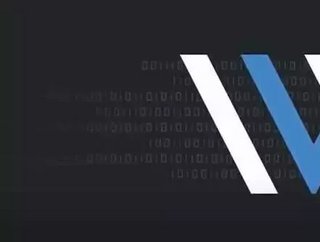Ivy.ai: advancing AI in higher education

Mark McNasby, CEO, Ivy.ai has been an EdTech entrepreneur for the last 20 years, “I started a company in 2001 called OptimalResume where we sold into the career centers at universities.” One of the challenges McNasby found its customer facing was that students weren’t coming to the career center, “so we came up with this idea for my second business called br.im, which was basically a virtual collaboration platform, allowing somebody who was in the career center to work with students who are remote”.
“With this platform we found out that students started asking the same questions over and over again. So that was really our epiphany moment that a chatbot was a much better way to have a win-win where the students are getting their questions answered in real time, as well as taking work off of the administrators' plate by having the chatbot handle it autonomously.”
He co-founded Ivy.ai in 2016, of which he is CEO, a natural language omni-channel AI chatbot, available on websites, SMS, Facebook messenger, Amazon Alexa, and even email. “When someone asks the chatbot a question we compare what they've asked to a large database of questions and data that we've used to train the model. Once the bot understands what the person is asking, it provides them with a particular answer,” he says.
“Ivy.ai has two main goals. One is the dissemination of information - someone asks a question, we give them an answer - but it is also very useful for collecting information. For example, perhaps for a prospective applicant interested in attending a school the bot can ask them for their contact information, which can be implemented into the engagement strategy that the school has.” McNasby added that AI chatbots also collect valuable transactional data that provide a real-time feedback loop as to what is most relevant to students and when.
“The typical implementation of Ivy.ai in higher education is being embedded onto schools' websites, allowing students or staff members to interact with the chatbot. But it can also be embedded into campuses to give students a more personalized experience, as well as having the capabilities to integrate with other on-campus vendors. For example, if a student said, ‘What's my account balance’ to the chatbot, Ivy.ai would connect to the student information system or to the accounting system of records to retrieve that information and tell the student what their balance is, but also give them a facility for paying the remainder of their balance.” Ivy.ai also provides a suite of tools for more efficient human intervention, such as AI-powered Live Chat, and an SMS texting facility for proactively nudging students.
Ivy.ai’s partnership with the University at Buffalo
“One of the main problems that we solve is that Ivy.ai levels the playing field for all different types of students. Student equality is a big theme which is tightly related to accessibility. So our chatbot creates the same level of service and answers for students regardless of their circumstance.”
In partnering with the University at Buffalo, Ivy.ai is helping the university to achieve its vision of making information accessible to anyone wherever they are. “The pandemic essentially highlighted some deficiencies for the university, and how they were delivering their services to stakeholders who don't necessarily have equal access to technology and systems. Part of their strategy of digital transformation is to use a chatbot to make all information accessible to all users. So their plan is essentially to start with the IT help desk, and then ultimately roll it out to the wider campus through a departmental deployment strategy.”






